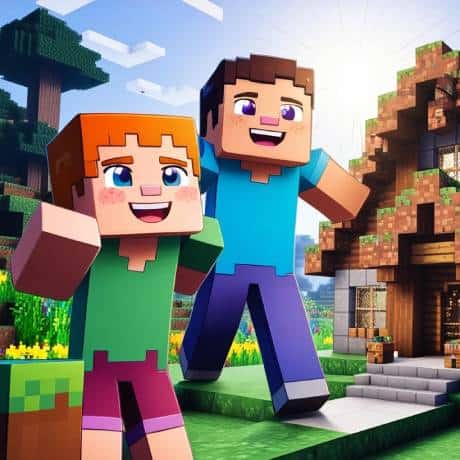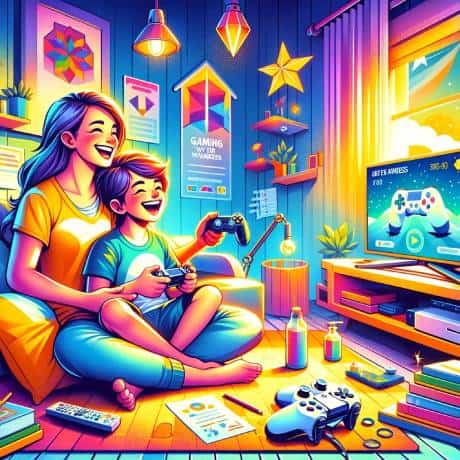Collaborative Play: Encouraging Cooperative Gaming for Autistic Children 🎮👫
In an increasingly digital world, video games have become more than just a pastime; they are now a significant part of social interaction, especially for children. For autistic children, who often face challenges in social communication, cooperative gaming can be an invaluable tool. These games offer a unique platform to build social skills, develop empathy, and practice teamwork in a structured, engaging environment. 🌟
The Benefits of Cooperative Gaming
Cooperative games require players to work together to achieve common goals, fostering a sense of teamwork and collaboration. For autistic children, these games can be particularly beneficial because they provide:
-
Structured Social Interaction 🛠️:
Cooperative games have clear rules and objectives, which can help autistic children navigate social situations more comfortably.
-
Practice in Empathy 💛:
Working together in a game often requires players to consider the needs and perspectives of their teammates, helping to build empathy.
-
Improved Communication Skills 🗣️:
To succeed in cooperative games, players need to communicate effectively, whether it’s discussing strategies, giving instructions, or offering encouragement.
-
Reduced Social Anxiety 😌:
The virtual nature of gaming can make social interaction less intimidating for autistic children, allowing them to engage with others in a controlled, safe environment.
Choosing the Right Cooperative Games
Not all games are created equal when it comes to promoting social skills and cooperation. Here are some categories and examples of games that are particularly effective in encouraging collaborative play:
-
Team-Based Strategy Games 🧩:
Games like Overcooked and Minecraft require players to work closely together to complete tasks, encouraging communication and teamwork. -
Role-Playing Games (RPGs) 🛡️:
Games such as Lego Star Wars involve players taking on different roles with unique abilities, which fosters cooperation as they must combine their strengths to overcome challenges. -
Puzzle Games 🔍:
Titles like Portal 2 or Lovers in a Dangerous Spacetime involve players solving puzzles together, promoting teamwork and problem-solving skills. -
Sports Games ⚽:
Cooperative sports games like Rocket League or FIFA provide a fun way for children to engage in teamwork, strategy, and communication while competing against others.
Implementing Cooperative Gaming
To maximize the benefits of cooperative gaming for autistic children, consider the following strategies:
-
Play Together 👨👩👧👦:
Whenever possible, join in on the gaming sessions. This not only allows you to guide your child but also provides an opportunity to bond and model positive social interactions. -
Set Cooperative Goals 🎯:
Encourage your child to focus on teamwork rather than winning. Setting goals like “work together to build this structure” or “complete this level as a team” can shift the focus from competition to collaboration. -
Reflect on the Experience 🤔:
After gaming sessions, talk about what worked well and what didn’t. Discuss how cooperation helped achieve goals and how communication played a role. This reflection can help reinforce the lessons learned during gameplay. -
Create a Safe Environment 🛡️:
Ensure that the gaming environment is positive and supportive. Avoid games that encourage aggressive competition or negative interactions, and monitor online interactions to prevent exposure to toxic behaviour. -
Encourage Real-Life Application 🌍:
Reinforce the skills learned in games by encouraging your child to apply them in real-life situations. For example, if they worked well with a teammate in a game, praise them and suggest they use the same approach when playing with friends or siblings.
Research and Evidence
The use of cooperative gaming as a tool for social development in autistic children is supported by growing research. A study published in Autism Research highlights that cooperative video games can significantly improve social communication and teamwork skills in autistic children 🧠. Another study in the Journal of Child Psychology and Psychiatry found that children who engaged in cooperative gameplay exhibited increased empathy and reduced social anxiety, making it an effective tool for social development 😇.
Conclusion
Cooperative gaming presents a powerful, engaging way for autistic children to develop crucial social skills. By carefully selecting the right games and guiding children through their gaming experiences, parents and caregivers can use video games as a tool to teach cooperation, empathy, and communication. With mindful implementation, cooperative gaming can help autistic children navigate social interactions more confidently, both in the virtual world and beyond. 🌐
Author:
 |
Lionel Thomas Father, Gamer and Founder with a Passion for Health, AI, Environment and Gamification of Life. |
Author Tools:
- ChatGPT (Content Enhancements & Research)
- ElevenLabs (Audio by AI)
- GSpeech (Audio by AI)
- Other Tools (AI)...
Artists:
References:
-
1. Sensory Processing Patterns and Fusiform Activity During Face Processing in Autism Spectrum Disorder
Wiley Online Library
https://onlinelibrary.wiley.com/doi/full...
Summary:
The study "Sensory Processing Patterns and Fusiform Activity During Face Processing in Autism Spectrum Disorder" explores the relationship between sensory processing abnormalities and brain activity in individuals with Autism Spectrum Disorder (ASD). Using functional MRI, the researchers examined how sensory processing patterns, particularly Sensation Avoiding, correlate with brain activity in the fusiform gyrus—a region critical for face processing. The study found that in individuals with ASD, higher Sensation Avoiding scores were associated with increased right fusiform gyrus activity during face processing tasks. This suggests that sensory processing abnormalities may contribute to the atypical face processing observed in ASD. The findings highlight the importance of understanding sensory processing patterns in addressing social communication deficits in ASD. Limitations of the study include its small sample size and reliance on self-reported sensory processing patterns. Further research with larger samples is needed to confirm these results and explore potential therapeutic interventions.
-
2. Editorial Perspective: Prato Research Collaborative for change in parent and child mental health – principles and recommendations for working with children and parents living with parental mental illness
The Association for Child and Adolescent Mental Health (ACAMH)
https://acamh.onlinelibrary.wiley.com/do...
Summary:
The editorial "Prato Research Collaborative for Change in Parent and Child Mental Health" outlines principles and recommendations for supporting children and families impacted by parental mental illness. The authors, representing seven countries, emphasize the need for a systemic, family-focused approach to mental health services. Children whose parents have mental illnesses are at higher risk for developing mental health issues themselves. Despite the availability of evidence-based interventions, these have not been widely adopted, necessitating significant service reorientation. Recommendations include integrating child and family-focused practices into mental health services, improving cross-agency collaboration, and providing tailored support to both parents and children. The editorial calls for changes at the practice, workforce, and systems levels to better address the needs of these vulnerable families.








 Snacks
Snacks Water
Water Eye Sight
Eye Sight Hearing
Hearing














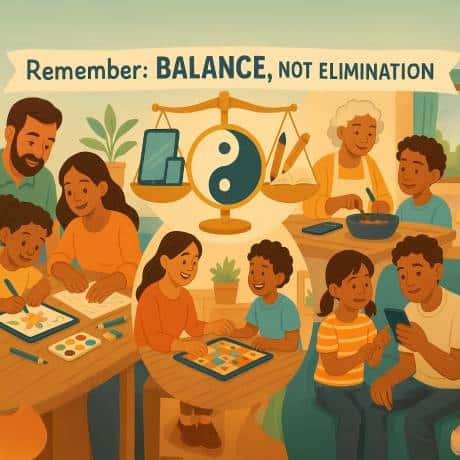

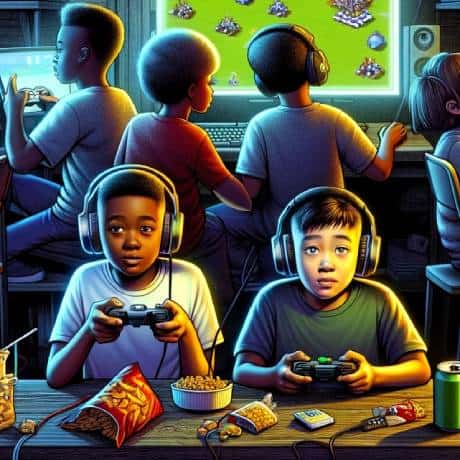

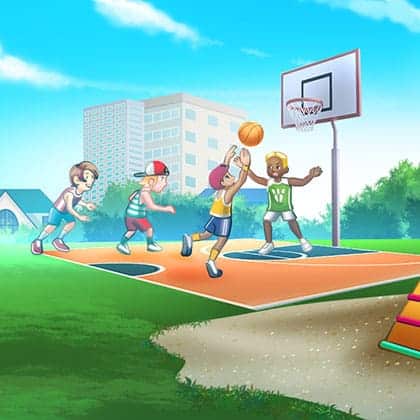



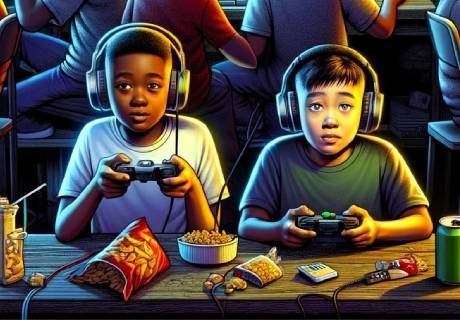
 Screen Time
Screen Time Play Sports
Play Sports
